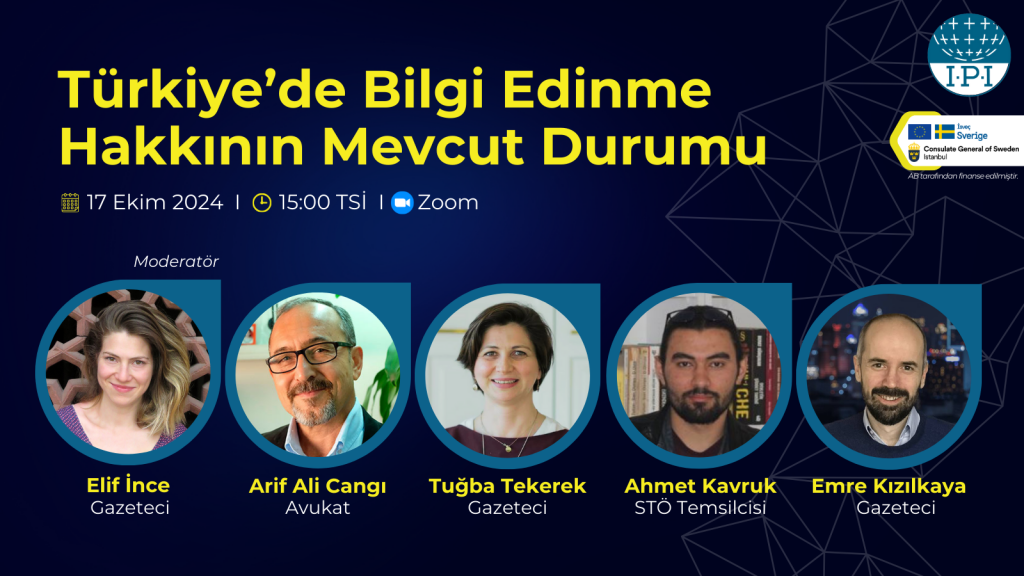I’ve been working on stories about migration and refugees for eight years since I moved to Istanbul, and my requests for information from the government have continually been ignored and neglected.
The ruling Justice and Development Party (AKP) processes our press visas and work permits every year, giving us foreign reporters freedom and permission to report the news. We have more leeway to investigate in Türkiye compared to our local colleagues. But getting a comment is like a chase in a dead end maze.
The AKP makes it no secret that they don’t like the Western press because they claim we are biased against them, but when no one answers our calls — and I’m not the only one getting radio silence among the foreign press corps — how can we present the government’s side? With every story, I reach out to the government and the relevant ministries to get their side. I search for the spokespeople on file, but nobody wants to talk on the record because they are afraid of backlash from their bosses.
The ruling government needs to establish an organized system in which the local and foreign press can get commentary and answers if they want balance in our stories. Otherwise, story after story, we get jilted with no response and then blamed for imbalance in our work.
Answers from government officials and their ministries have been fewer and fewer since I moved here in 2015.
Since Türkiye took control of refugee cases, refugees say they have no recourse for accountability. They say the UN was more organized and less hostile during the registration process before 2018.

Fariba Nawa interviews Mahshid Nazemi, a refugee from Iran who was based in Isparta, Türkiye.
Refugees and migrants report human rights abuses inside detention centers, discrimination during the interview process to be considered for asylum and resettlement to third countries with Turkish immigration officers, and a lack of transparency about their individual cases. Afghan migrants tell me they were forced to sign voluntary deportations forms when they thought they were signing asylum forms.
Many Iranians tell me that their cases were approved by the UN before Türkiye took charge of administering refugee cases to third countries in September 2018. These Iranians were waiting for a third country to resettle them, the next stage of the asylum process. But the Iranians tell me that the Turkish immigration overturned those UN approvals and insisted on re-evaluating them, prolonging the process for the refugees.
I reached out to the United Nations High Commissioner for Refugees (UNHCR) and after a couple of months, their spokesperson Selin Ünal gave me an interview for a podcast I’m working on. Ünal told me that she’s not aware of any overturned individual cases, and that the UN partners up with Türkiye’s immigration department to decide on the most vulnerable cases eligible for resettlement. Ünal said the West needs to resettle more of the nearly 4 million refugees who remain in Türkiye sometimes for years.
There’s no argument that Türkiye is hosting the largest number of refugees in the world, but hospitality from the local population has turned into hostility and xenophobia. Rising inflation and economic downturn in Türkiye have led to even more prejudice, turning refugees into scapegoats.
Syrian, Afghan and Iranian communities all complain of involuntary deportations. Among the Iranians in detention centers threatened with deportation is activist Shilan Mirzaee, who was dragged out of her home in front of her six-year-old son and husband. Mirzaee was a registered refugee before 2018, but on October 24, Turkish police detained her and threw her in a detention center, which is akin to a jail. Under international law, it’s illegal to deport registered refugees unless they have broken the law of their host country. Mirzaee, in a video she released on her Instagram, says she was not informed of any charges filed against her.
Mirzaee was advocating on behalf of Iranians against the Iranian regime for the Women, Life, Freedom movement in Iran. Was she arrested for being a women’s rights activist? Authorities maintain that they can’t comment on individual cases due to confidentiality, but they must answer questions about human rights abuses against refugees committed inside detention camps and in government offices. Is there another perspective to these accounts told by refugees? I’d love to hear it if there is. But who’s going to answer my email or my call from the government?
Fariba Nawa is the host of On Spec Podcast and a freelance journalist based in Istanbul. She regularly covers migration-related issues in Turkey. Her bylines have appeared in numerous outlets including the New Yorker, Financial Times, Sunday Times, New York Review of Books and Time.




